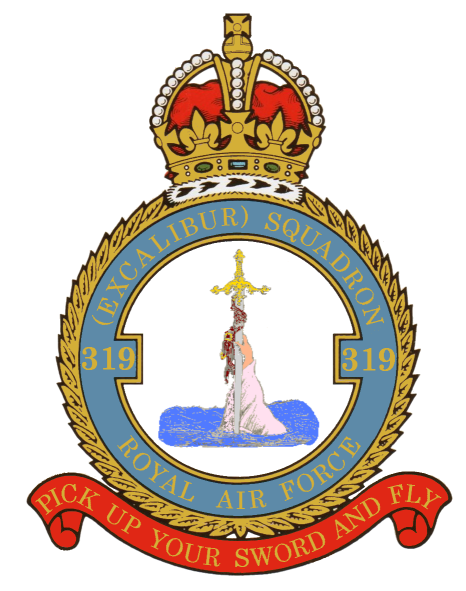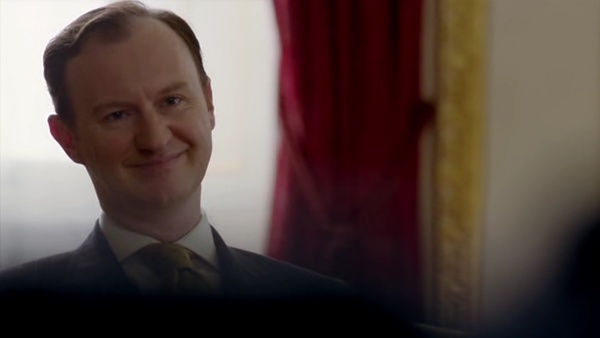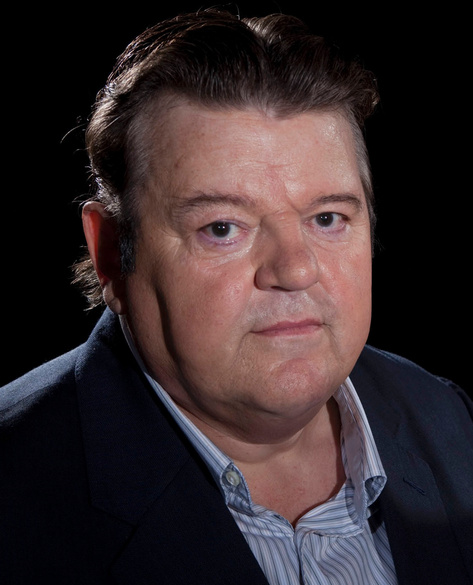
Mediterranean sunlight-
Sweet Parisian rain-
Bright Arctic starlight-
The song remains the same-
Sing out 'Lili Marlene', dance the Jitterbug too-
City lights are oh so bright, as we go diving...climbing...flying...through...*
Excalibur Squadron is an intellectual property that is copyrighted by me alone, under the US copyright code. As such, I own everything here in terms of plot, characters, etc. By being a part of this RP, you are giving your consent to this being the standard operating procedure. I may well decide to make money off of Excalibur in the future, and as such, need to have the necessary infrastructure in place to ensure that somebody else can't just walk in here and steal ES from under my nose.
If you have any questions, feel free to TG me about it.
Excalibur Squadron Roster - REVISED FOR LIMITED REBOOT:
Red Flight:
Sword 1/Sword Leader: Squadron Leader Captain Robert Page - The American Tiger Kingdom - British
Sword 2: Flying Officer Zeke Thomas - Grenartia - American
Sword 3: Flying Officer Kenneth Carson - Organized States - Canadian/American
Sword 4:
White Flight:
Sword 5: Flight Lieutenant Geoffrey Talbot - Two Jerseys - British
Sword 6: Flying Officer Cliff McTavish - Gibberan - American
Sword 7: Sous-Lieutenant (Flying Officer) Henri Vodat - United Kingdom of Poland - French/Russian
Sword 8:
Blue Flight:
Sword 9: Flight Lieutenant Harry White - Morrdh - British
Sword 10: Flying Officer Gareth Cowell - Heavonia - British
Sword 11: Flight Lieutenant Benjamin Silva - "Nighthawk" - Len Hyet - American
Sword 12:
| Excalibur Squadron Sleeping Arrangements for HMS Llamrei | Feel free to let (Gren) know when corrections are needed |
| Suite 1: -Captain/Squadron Leader Robert Page -Captain/Squadron Leader Robert Page's Office | Suite 2: -Flight Lieutenant Alexandra Noble -Corporal Kaya Waddock |
| Suite 3: -Flying Officer Andrew Carter | Suite 4: -Flying Officer Charles Fodder -Flying Officer Douglas Stanford |
| Suite 5: -Staff Sergeant Aircrew Sebastian Smithington-Smythe /td][td]Suite 6: -Flight Sergeant Jimmy Thibodeaux |
Flight Lieutenant Alexandra Noble - The American Tiger Kingdom - British
Major Roy Cutler - American Tiger Kingdom - British
Major Reginald Royce -American Tiger Kingdom - British
Corporal(WAAF) Kaya Waddock - Morrdh - Australian
Valérie Adèle Marchand - Two Jerseys - French
Captain Albert Higgins - Morrdh - British
Horatio Bruce MacChomp-Chomp - American Tiger Kingdom - Atlantic
Commander Anthony B. Smollett, RN - Gibberan - British
Captain Malcolm A. MacFinn, RN - American Tiger Kingdom - Scottish as all get out
The Llamrei Crew - American Tiger Kingdom - Multinational
Sergeant Marius Coetzee - American Tiger Kingdom - South African
"Lieutenant William Reide" - American Tiger Kingdom - "South African"
Squadron Leader Bruce Kyner - American Tiger Kingdom - Australian
- Code: Select all
[b]Name:
Date of Birth:
Rank:
Physical Description/Picture:
Place of Origin:
Flight/Flight Combat Experience (MANDATORY):
Ground Combat Experience:
Specialties (air or ground - communications, demolitions, disguises, languages, etc.):
Weapons of Choice:
RP Experience:
Personal History/Bio (more than one line please):[/b]
- Code: Select all
Name:
Age:
Rank:
Physical Description/Picture:
Country of Origin:
Sea/Sea Combat Experience (MANDATORY):
Other Combat Experience:
Specialties (air or ground - communications, demolitions, disguises, languages, etc.):
Weapons of Choice:
RP Experience:
Personal History/Bio (more than one line please):
- Code: Select all
Name:
Age:
Occupation:
Physical Description/Picture:
Country of Origin:
RP Experience:
Personal History/Bio (more than one line please):
- Code: Select all
- Name of Nominator:
- Rank of Nominator:
- Name of Nominee
- Rank of Nominee:
- Decoration Deserved:
- Actions Meriting Said Decoration:
- Code: Select all
Name of Promotion Nominee:
Current Rank of Nominee:
Rank to be Promoted to:
Justification for Promotion:
- Operation Guillotine - June 1940: Ultimately a draw - mission was accomplished at the cost of one pilot dead and one captured, ultimately, target was not fully neutralized
- Operation Mordred - July-August 1940: Actual raid made moot due to enemy attack, enemies successfully turned back and SS raid neutralized
- Operation Cambyses - September-October 1940: Success
- Operation Taurus - November 12th-17th, 1940: Mission a complete failure - suspect enemy misinformation as main cause. Over 40% casualties sustained.
- Operation Highwire - December 29th, 1940/January 7th, 1941: Both phases of mission total success. Four of the seven missing Excalibur operatives were retrieved (the only ones still believed to be alive), and a German officer was captured alive.
[align=center]Backstory Archive
- Get Your Wings, Part I - Nowhere Man - Page arrives in Iraq.
- Get Your Wings, Part II - Pure and Easy - Page gets a drubbing.
- Forging the Sword, Part I - Vagabond Of The Western World - A young Lieutenant Robert Page arrives in a tramp steamer to join the Republican side in the Spanish Civil War.
- Forging the Sword, Part II - The Fly - Page opts to take a chance on a dangerous aircraft.
- Forging the Sword, Part III - Hammer to Fall - Page draws first blood against a Nationalist bomber group, and proves himself to the squadron.
- Forging the Sword, Part IV - Chain Lightning - A stormy battle over Jarama Valley claims the life of Page's wingman.
- Forging the Sword, Part V - Fireball - A milk-run mission turns into a slaughter Page only survives by the skin of his teeth.
- Forging the Sword, Part VI - Back in the Saddle - Page survives his crash, is rescued by a local band of Republican partisans, and is determined to continue the mission, even with his injuries paining him at every step.
- Forging the Sword, Part VII - No Prayer for the Dying - Embarking on a recon mission in a last-ditch attempt to find a way to destroy the Fascist forward headquarters, Page is confronted firsthand with the horror of war.
- Forging the Sword Part VIII - Cold As Ice - Page falls rather badly.
- Forging the Sword Part IX - Come Together - The plan to attack the Fascist headquarters is revealed.
- Forging the Sword Part X - Heading Out to the Highway - Page and Izzy hit the road.
- Forging the Sword, Part XI - Lady Double Dealer - The ambush is laid and sprung, with the Nationalists not seeing their fate until it's far, far too late.
- Forging the Sword, Part XII - Undercover of the Night - With the Fascist uniforms, the raid can finally begin.
- Forging the Sword, Part XIII - Shot In The Dark - The assault on the Fascist HQ kicks off swimmingly.
- Forging the Sword, Part XIV - Movin' On - The bandits get out of dodge, the Condor Legion asserts themselves, and Page thinks about his future.
- The Prisoner, Part I - Into the Void - Page's descent into hell begins.
- The Prisoner, Part II - Complete Control - Konrad chats with a friendly SS doktor about Page's future.
- The Prisoner, Part III - Fade to Black - The mind can only last so long under hellish conditions without breaking somewhere.
- The Prisoner, Part IV - Architecture of Aggression - Page gets a shock.
- The Prisoner, Part V - The Evil That Men Do - Konrad makes Page an offer.
- The Prisoner, Part VI - Born to Lose... - The situation's quickly slipping out of Konrad's fingers.
- The Prisoner, Part VII - ...Live to Win - Page reaches the end of the line.
- Within You Without You - Things get weird.
- All I Can Do Is Write About It, Part I - Paul's letter, July 1940.
- Hurts So Good - Knuckles get bloodied on the Illustrious.
- She's Leaving Home - Alix gets sick of hanging around.
- Hell Bent for Leather - Page confers with a colleague.
- Torn and Frayed - Page gets to work.
- Back in Black - Page gets a new face.
- The Talbot Files, Part I: Somewhere in France with You - Talbot's recon flight over France goes badly wrong.
- The Talbot Files, Part II: Wish Me Luck as You Wave Me Goodbye - Talbot tells his side of the story in the aftermath of Part 1, and deals with the repercussions.
- The Talbot Files, Part III: The General's Fast Asleep - Talbot has a meeting with the ACM, and is extended a rather special offer.
- The Talbot Files, Part IV: Is That the Way to Treat a Sweetheart? - Talbot gets the news of his transfer, and deals with an unappreciated competitor.
- The Talbot Files, Part V: Who's Taking You Home Tonight? - Talbot takes the opportunity to unwind with some friends while off-duty.
- The Talbot Files, Part VI: The First Quarrel - Even recovering from his injuries in the aftermath of battle, Talbot manages to stir up some trouble in the infirmary.
- The Talbot Files, Part VII: Two Sleepy People - Talbot makes a friend while convalescing.
- The Talbot Files, Part VIII: Just a Few Angry Words - Talbot leaves the hospital in style.
- The Talbot Files, Part IX: It’s Home - Talbot has a bit of an unconventional homecoming.
- The Talbot Files, Part X: Wishing (Will Make It So) - Talbot has a night on the town, and gets to meet a rather famous singer.
- The Talbot Files, Part XI: Heart to Heart - Talbot and Vera realize that Ellie's paramour is an unforgivable cad.
- The Talbot Files, Part XII: It’s a Sin to Tell a Lie - After some investigation, Talbot suspects said cad may be quite a bit shadier than originally thought.
- The Talbot Files, Part XIII: Alone - Talbot's interrogation begins in earnest.
- The Talbot Files, Part XIV: We Three (My Echo, My Shadow, and Me) - The watery torture continues.
- The Enemy Within, Part I - Conspiracies are afoot in the heart of the city.
- The Enemy Within, Part II - The plot thickens in the Dorchester bar.
- Fleeting Memories of a Madman: Part One 'FIX SWORDS!' - Smythe is forced to make a change in management to hold the trench-line.
- Sabres In The Night, Part I - Charlie begins his training in the deadly art of night-fighting.
- Sabres In The Night, Part II - Charlie's first day of NF training commences, and he meets his new gunner.
- Sabres In The Night, Part III - Even before their first flight begins, Charlie and his observer Rankin are nearly at each others' throats.
- Sabres In The Night, Part IV - Charlie has his first midnight dogfight over Bromley.
- Sabres In The Night, Part V - A night ambush goes over like a lead balloon for Charlie.
- Sabres In The Night, Part VI - Charlie's safe after his crash...but for how long?
- Sabres In The Night, Part VII - Charlie enjoys the hospitality of the French Resistance.
- Sabres In The Night, Part VIII - The French Resistance creates an opening for Charlie to escape back to England.
- Setting Of The Sun, Part I - The birth of the state of Israel isn't exactly a calm process for Charlie.
- Setting Of The Sun, Part II- The Egyptians do a real number on Charlie's airfield.
- Setting Of The Sun, Part III - Charlie gets conscripted.
- On A Wing And A Prayer, Part I - Charlie gets shanghai'd into a mysterious new mission.
- On A Wing And A Prayer, Part II - The mysterious new mission becomes slightly less mysterious.
- On A Wing And A Prayer, Part III - Charlie gets his briefing for the recon flight.
- On A Wing And A Prayer, Part IV - Charlie sets off on a very long flight.
- On A Wing And A Prayer, Part V - The Germans greet Charlie upon arrival.
- On A Wing And A Prayer, Part VI - Charlie has a bumpy landing.
- Baghdad Days, Part I - Charlie arrives in the Middle East.
- Baghdad Days, Part II - Charlie helps out the mechanics.
- The Debris of War, Part I - Things take a turn for the worse for Kaya.
- My Cold Dead Hands - Silva makes a daring escape.
- My Cold Dead Hands Part Two: In Shining Armor - Silva cleans house, and manages to save a fair senorita in the process.
- My Cold Dead Hands Part Three: Let Slip the Dogs of War - Silva turns out the lights on the Italians.
- My Cold Dead Hands Part Four: Though I Walk in the Shadow of the Valley - Silva visits some old friends.
- Stanford's Story Part I - A hot air battle over Dunkirk serves as Stanford's baptism of fire.
- Stanford's Story Part II - Stanford receives grim news.
- Stanford's Story Part III - Stanford plays with a kill over Dunkirk.
- Stanford's Story Part IV - An attempt to get clearance for a solo Kraut hunt doesn't go as Stanford plans.
- Stanford's Story Part V - Adlertag is a bitter time for Stanford as well, as his home airfield is hit by a German bombing raid.
- Stanford's Story Part VI - Stanford gets the privilege of dogfighting with the current German Ace of Aces, Major Werner Molders, over London.
- Stanford's Story Part VII - Another massive air battle over England draws Stanford's 41 Squadron into the fight.
- Stanford's Story Part VIII - Stanford joins the "Big Wings" to fight the Luftwaffe's last main push to establish air superiority over England, and gets a transfer order in the aftermath.
- Stanford's Story: Reaping the Whirlwind: Part I - Doug has a change of scenery with the bomber boys at RAF Bywater, with a big raid in the works.
- Stanford's Story: Reaping the Whirlwind: Part II - Doug meets the Group Captain of his new squadron.
- Stanford's Story: Reaping the Whirlwind: Part III - The target gets picked for Doug's bomber team.
- Stanford's Story: Reaping the Whirlwind: Part IV - The checklist is checked.
- Stanford's Story: Reaping the Whirlwind: Part V - The night raid gets going.
- Stanford's Story: Reaping the Whirlwind: Part VI - The raid is right on target.
- Stanford's Story: Reaping the Whirlwind: Part VII - The bombs fall.
- Stanford's Story: Reaping the Whirlwind: Part VIII - Fade to black.
- Origins - Young Monroe and his cousin take things a little too far with a crop-duster.
- Unnamed Monroe Bray Story #002 - In 2005, Monroe reminisces with his grandson.
- Sortie to Hell, Part I - Bad Timing - James arrives in Spain.
- Sortie to Hell: Part II; Shadows of the Night - James is taken an unwilling guest of the OVRA.
- Letters to Mary, Part I - First installment.
- In Troubled Hours - Part I - Cropdusting, Close Calls, and Spain - The farm life doesn't quite suit Andrew anymore.
- In Troubled Hours - Part II - Fighting Fascists In the Air and Commies on the Ground - For Andrew, Spain can be just as dangerous among friends as it is in the air.
- In Troubled Hours - Part III - The Rampant 109 - Andrew runs out of luck.
- Clipped Wings, Part I - Nobody - Melody gets back on her feet.












